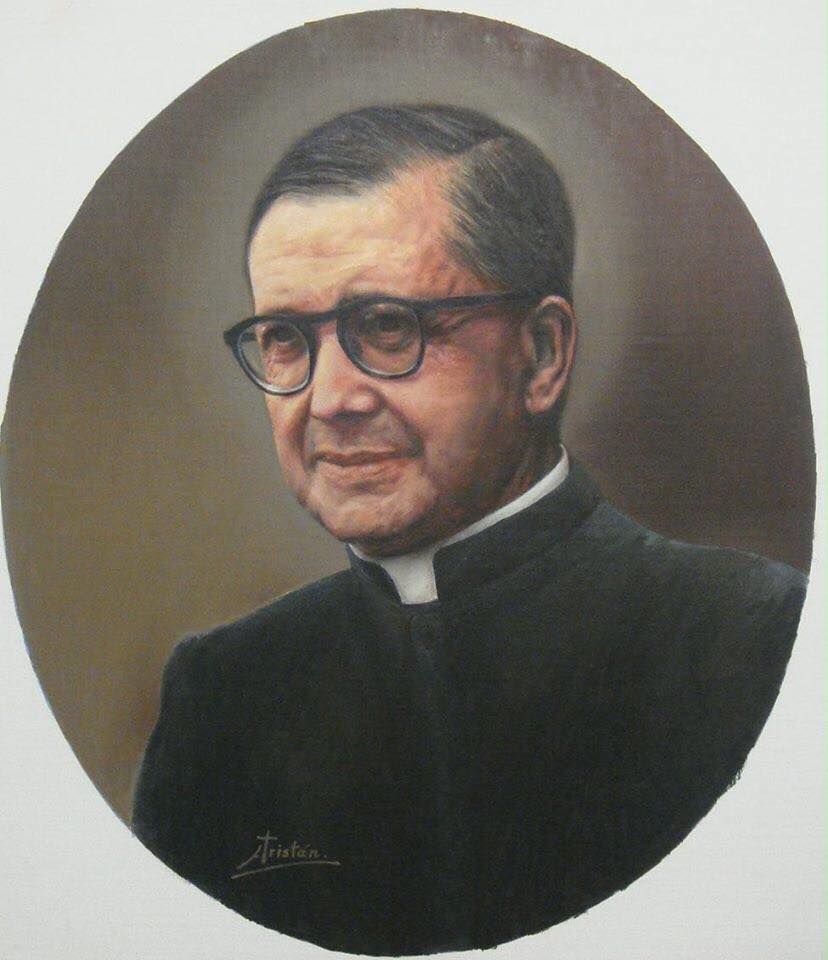
St. Josemarie Escriva (1902-1975) Image courtesy of Wikicommons, Andres Tristan Pertinez, CC BY-SA 4.0
LL writes: “What do you think of Opus Dei? Is it New Age?”
No, Opus Dei (Latin for work of God) is a personal prelature of the Catholic Church which was founded by a canonized saint, St. Josemaria Escriva (1902-1975), on October 2, 1928.
The main mission of the group is to communicate the universal call to holiness and apostolate in the world by encouraging members to turn the ordinary circumstances of their life into occasions for growing closer to God and for serving others. Members practice an intense prayer life and have access to spiritual formation through classes, retreats, etc. and are encouraged to also commit themselves to helping those they encounter in life to work for the renewal of the culture and civilization in general, imbuing them with the love of Christ.
The group originated in a divine inspiration given to St. Josemaria during a retreat in Madrid. He felt that the Lord was calling upon him to found an organization that would become a means of sanctification for people from all walks of life.
Because membership in Opus Dei is considered to be a vocation, priests and laity interested in joining must discern whether or not they have received a call from God to place their whole life at His service. As is the case when attempting to enter a religious order, a brief period of discernment is required for both the candidate and the leadership of Opus Dei. A person who is accepted into Opus Dei signs a contract rather than professes vows or promises.
Contrary to what some people believe, there are not different categories of members in Opus Dei, simply different ways of living the Christian vocation according to one’s life circumstances such as being married or single, healthy or sick, etc.
“The majority of the faithful of the Prelature (about 70% of the total membership) are supernumeraries. Generally they are married men or women, for whom the sanctification of their family duties is the most important part of their Christian life,” the main website explains.
“The rest of the faithful of the Prelature are men and women who commit themselves to celibacy, for apostolic reasons. Associates live with their families, or wherever is convenient for professional reasons. Numeraries usually live in centers of Opus Dei, and are completely available to attend to the apostolic undertakings and the formation of the other faithful of the Prelature.” These members amount to about 20% of the total membership.
Some female numeraries can become numerary assistants or persons who dedicate themselves to taking care of the centers of the Prelature which becomes their ordinary work. “They strive to facilitate the apostolic work, their own and that of the other members, by creating the atmosphere of a Christian home,” the site explains. This work is carried out not as an employee, but as mothers or sisters working in their own home.
Male members of Opus Dei may be called into the priesthood and, after receiving holy orders, would serve in the pastoral ministry of the Prelature and the various apostolic activities promoted by them.
A person who does not have a call from God, can serve as a Cooperator, which functions similar to that of an auxiliary member of the Legion of Mary. They are usually comprised of people who are friends or relatives of members and agree to help the group materially through contributions or spiritually by committing to offer their daily prayer for the work of the apostolate.
Personals stories of the life of a typical member of Opus Dei can be found here.
At present, there are more than 90,000 members in five continents with the main headquarters situated in Rome.
It’s not surprising that someone would wonder if Opus Dei is New Age as it has been accused of being everything from a cult to a secret society. And there have definitely been some abuses in various countries around the world, but the organization itself is not New Age and is in good standing with the Church.










